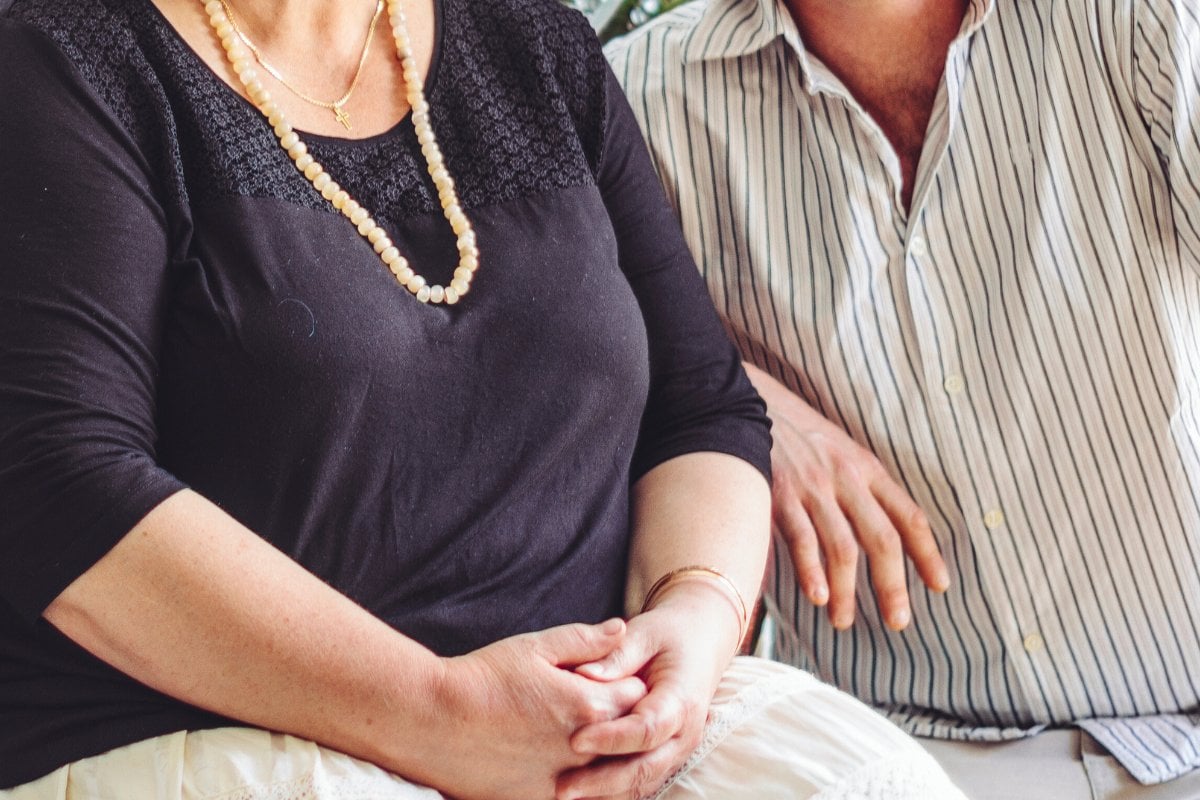
Content warning: this post discusses domestic violence and homicide.
On a cool Sunday night, in the Perth town of Byford, Evette Verney was viciously attacked inside her home. Desperate for help, she stumbled to a neighbour's house, collapsing on the driveway. By the time police arrived, Evette was dead. She was 61-years-old.
Police suspected homicide and a man-hunt for the suspected killer ensued. Evette's death, which took place on June 2, was the fourth alleged domestic violence murder in just one harrowing weekend.
But Evette's perpetrator — who has since been charged with her murder — wasn’t the woman’s husband. Nor was it a former partner.
The alleged killer was her own son, 33-year-old Harley Jefferies.
It’s jarring to read. An almost unimaginable concept.
Horrifyingly, Evette isn’t the first woman to be allegedly murdered by her own child in Australia this year.
Watch: It's not love, it's coercive control. Article continues after the video.
According to Sherele Moody from Australian Femicide Watch, four other men have allegedly, violently stolen the lives of their own mothers in the first six months of 2024, along with one woman.
